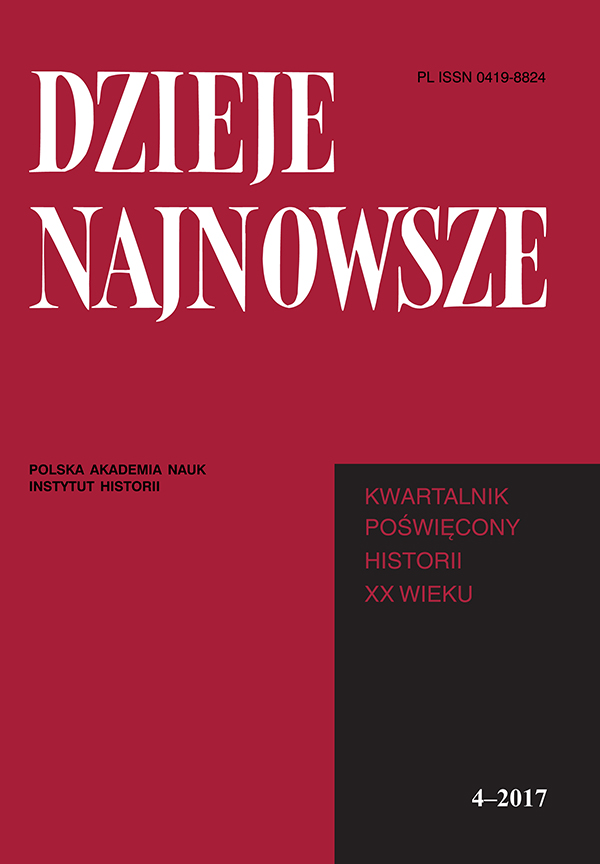Rola aparatu represji w kontrolowaniu granicy państwowej na przykładzie ziemi kłodzkiej w latach 1949–1956
The role of repression apparatus in surveying the state border on the example of Kłodzko Land in 1949–1956
Author(s): Krzysztof ŁagojdaSubject(s): Military history, Political history, Recent History (1900 till today), Post-War period (1950 - 1989)
Published by: Instytut Historii im. Tadeusza Manteuffla Polskiej Akademii Nauk
Keywords: Czechoslovak-Polish border;Poland;Klodzko;repression apparatus in Poland;Border Guard;Citizen’s Militia;
Summary/Abstract: On the example of Kłodzko Land the author presents one of the fundamental aspects of operations of the repression apparatus in the Stalinist period in Poland, that is the border control. From 1949 on, when the Border Guard was incorporated into the structures of the Ministry of Public Security, and a migration policy was tightened in general, the Ministry began to place a strong emphasis on the security of the state border. It applied both to all the border voivodeships (provinces), and districts. The author has analysed and emphasised several main tasks of the Security Office vis-à-vis a closure of the state border and their protection. He focuses on the presentation of counterintelligence characteristics of the terrain and systematic analyses of the border situation in 1949–1956. He described the organisation and development of the network of agents active on the border, detecting and constant surveillance of persons who wanted to illegally cross the border, liquidation of trafficking channels undertaken by the secret political police, and cooperation with the units of Border Guard and Citizen’s Militia. In a concise way he also presented consequences imposed on illegal crossers, among other things, on the example of sentences passed by the municipal court at Kłodzko and district court in Wrocław, he described the most frequent verdicts. After an analysis of the documents issued by the Special Commission for the Struggle against Abuses and Economic Sabotage, he answered the question whether the Commission was more repressive in this regard, and imposed more severe punishments. In conclusions, he was able to say whether the border of the Polish state during the Stalinist period was as tight and impossible to force as the communist authorities wanted it to be.
Journal: Dzieje Najnowsze
- Issue Year: 49/2017
- Issue No: 4
- Page Range: 185-211
- Page Count: 27
- Language: Polish

